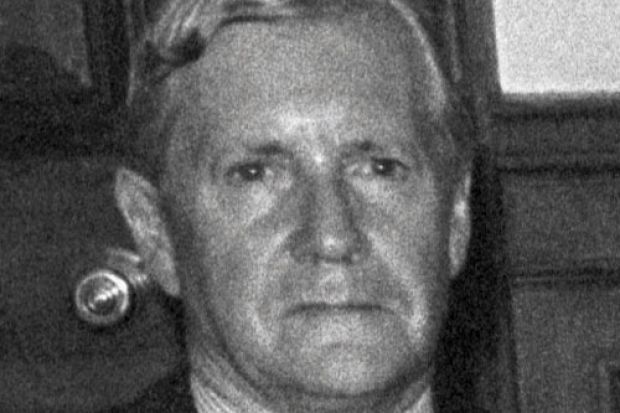Patrick Nairne was born into a military family in London on 15 August 1921 and educated at Radley College. Although he obtained a place at University College, Oxford, his studies were interrupted by war service with the Seaforth Highlanders. He took part in both the Battle of El Alamein and the invasion of Sicily, and was awarded the Military Cross.
After returning to Oxford, Sir Patrick graduated with a first in modern history in 1947 and would go on to spend the next quarter of a century at the Admiralty and the Ministry of Defence. He was private secretary to the First Lord of the Admiralty and then to Labour defence secretary Denis Healey (now Lord Healey) during the tense period when the minister was trying to merge the three separate branches of the armed forces into a single unified service.
After two years as Second Permanent Secretary at the Cabinet Office (1973-75), Sir Patrick ended his career heading the Department of Health and Social Security. His reputation as an urbane, conciliatory and supremely effective civil servant is reflected in rumours that he may have been the model for Sir Humphrey Appleby in the television series Yes Minister (1980-84).
After retirement from the DHSS in 1981, Sir Patrick continued to play an important role in public life, for example as part of Lord Franks’ committee on the Falklands conflict – which examined the vexed question of whether the Argentine invasion could have been anticipated – and as chair of the Nuffield Council on Bioethics (1991-96).
Yet he also embarked on what almost amounted to a new career in 1981 when he succeeded the charismatic founding master of St Catherine’s, Sir Alan Bullock. He would hold the post until 1988; from 1983 to 1997, he also served as chancellor of the University of Essex, following on from the Conservative politician Lord Butler, who had held the post since 1965.
For Ron Johnston, vice-chancellor of Essex from 1992 to 1995, Sir Patrick was “a staunch supporter and friend: his experience and wisdom were there to be tapped, with advice that was never pressed [upon one] but always available when asked for – and always given without any follow-up questioning to know if it was taken…The formal occasions were handled with quiet grace, good humour and the minimum of pomp.”
Sir Patrick died on 4 June and is survived by his wife, Penelope Chauncy Bridges, three sons and three daughters.
